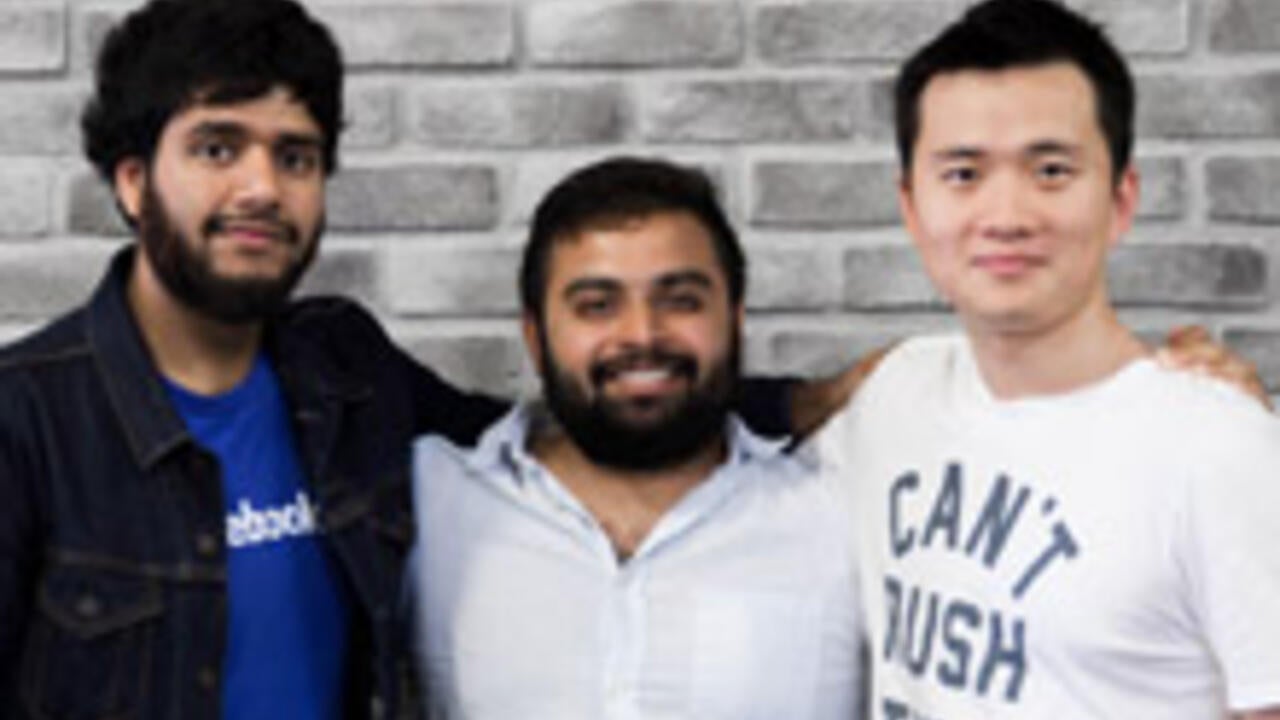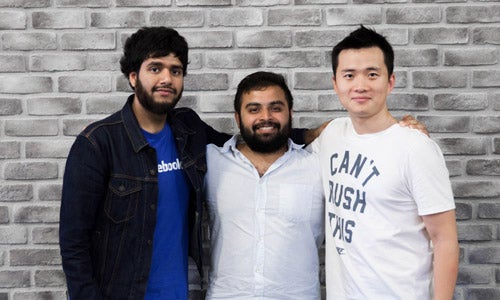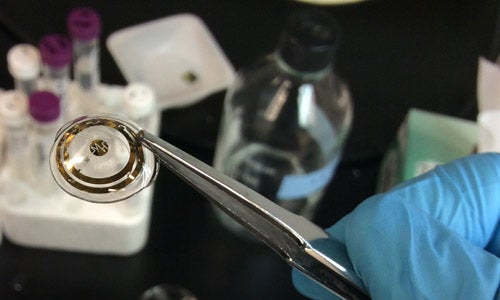
Waterloo invention only Canadian entry to make Dyson shortlist
Medella Health’s smart contact lens monitors glucose levels for better diabetes management

Medella Health’s smart contact lens monitors glucose levels for better diabetes management
By Carol Truemner Faculty of EngineeringMedella Health co-founders (left to right) Maarij Baig, Harry Gandhi and Huayi Gao
A smart contact lens developed by University of Waterloo students for diabetics to monitor glucose levels is the only Canadian entry to make the shortlist in this year’s international James Dyson Award competition.
 Medella Health was co-founded in 2013 by Waterloo science graduate Maarij Baig, Harry Gandhi, who studied science and business at Waterloo, and Huayi Gao, a Waterloo nanotechnology engineering graduate. Medella Health operates out of the University’s Velocity Garage in downtown Kitchener.
Medella Health was co-founded in 2013 by Waterloo science graduate Maarij Baig, Harry Gandhi, who studied science and business at Waterloo, and Huayi Gao, a Waterloo nanotechnology engineering graduate. Medella Health operates out of the University’s Velocity Garage in downtown Kitchener.
The company’s smart contact lens continuously monitors glucose levels in the tear film for diabetes management. The information collected is sent to a user’s mobile phone so the diabetic can better manage glucose levels throughout the day.
“Growing up a fan of science fiction, I was intrigued by exploring the unknown with technology,” says Gao. “A smart contact lens can not only help monitor our health, but also display it in real time for us to see. As we explore this vast unknown territory of human health bit by bit, we can eventually start to take preventative measures and stay tuned with our body."

Medella Health currently includes 15 experts in nanotechnology, health IT, micro-electronics and micro-fabrication. The company recently announced it had raised $1.4 million in seed funding and hopes to begin clinical testing of the smart contact lens next year.
Open to university students and recent alumni in the fields of product design, industrial design and engineering, the James Dyson Award is an international challenge to design something that solves a problem.
It is the third year in a row that companies started by University of Waterloo students or recent graduates have been named to the shortlist in the prestigious contest started the British inventor of the bagless Dyson vacuum cleaner.
Last year, Voltera and its four University of Waterloo engineering co-founders – Alroy Almeida, Katarina Ilic, James Pickard and Jesus Zozaya – went on to become the first Canadian company to win the top award, beating out 710 entries from 20 countries.
Voltera captured a $60,000 top prize, plus $10,000 for the University, for its custom circuit board printer, which enables rapid prototyping and dramatically reduces delays by using conductible inks.
In 2014, Waterloo startup Suncayr was the first Canadian team ever to be shortlisted and went on to be a runner-up in the international competition. The Suncayr team developed a sunscreen marker that changes colour when you need to reapply sunscreen.
This year’s shortlist of 20 announced September 28 was whittled down from 100 finalists representing 22 countries. The international winner will be announced on October 27.

Read more
Here are the people and events behind some of this year’s most compelling Waterloo stories

Read more
Meet the five exceptional graduate students taking the convocation stage as Class of 2024 valedictorians

Read more
Meet the 13 exceptional students representing Waterloo’s newest grads
Read
Engineering stories
Visit
Waterloo Engineering home
Contact
Waterloo Engineering
The University of Waterloo acknowledges that much of our work takes place on the traditional territory of the Neutral, Anishinaabeg, and Haudenosaunee peoples. Our main campus is situated on the Haldimand Tract, the land granted to the Six Nations that includes six miles on each side of the Grand River. Our active work toward reconciliation takes place across our campuses through research, learning, teaching, and community building, and is co-ordinated within the Office of Indigenous Relations.